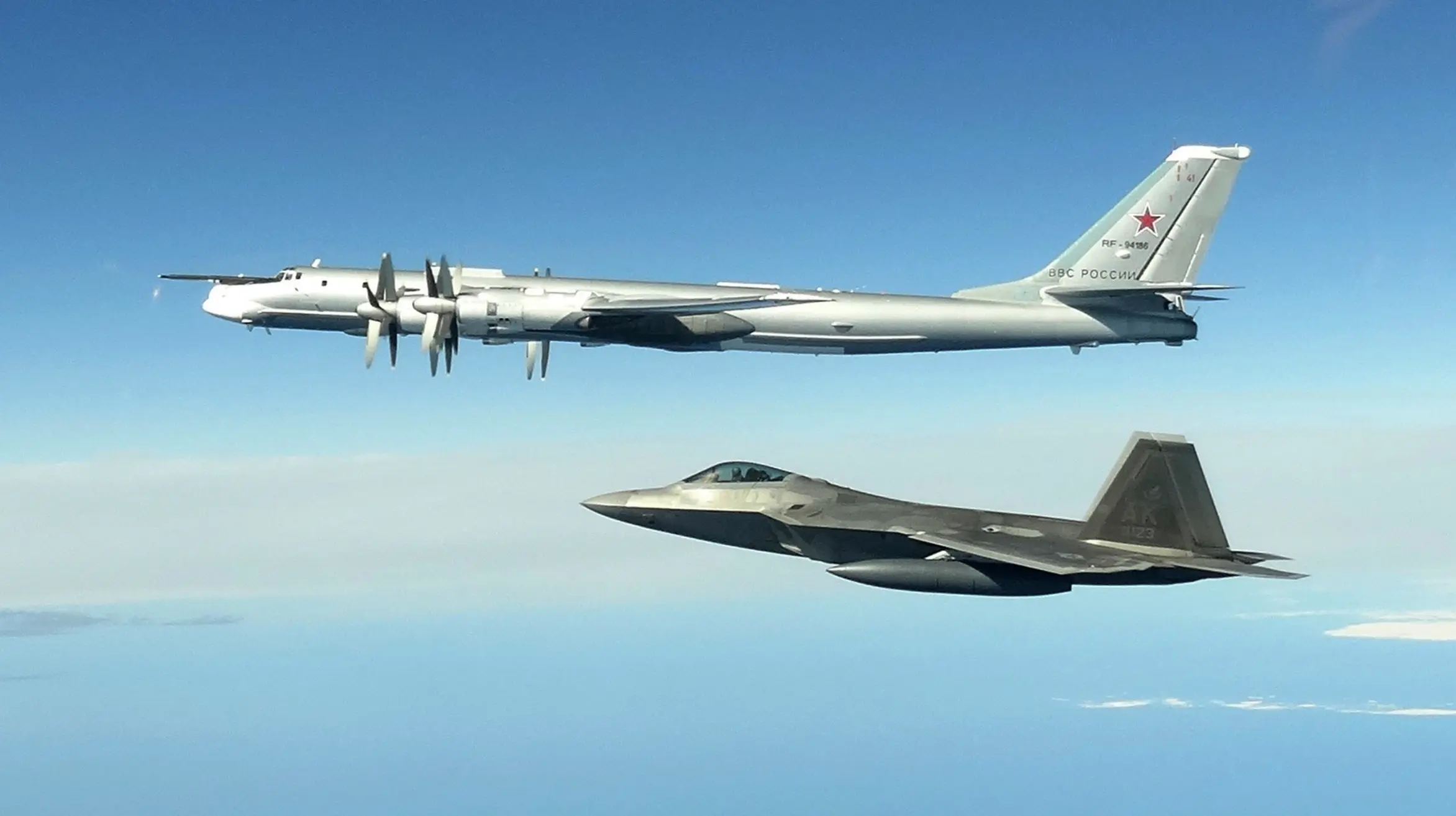Alaska (Transatlantic Today)— The North American Aerospace Defense Command (NORAD) announced on Thursday that it had detected and tracked four Russian military aircraft operating within the Alaska Air Defense Identification Zone (ADIZ), as stated in a recent NORAD press release.
NORAD clarified that the Russian aircraft remained within international airspace and did not enter the sovereign airspace of the United States or Canada. Such activity near the Alaska ADIZ is considered routine and not perceived as a direct threat.
NORAD’s role in airspace surveillance
The ADIZ marks the boundary where national airspace ends and international airspace begins and requires the identification of all aircraft for security purposes. NORAD uses a sophisticated system of satellites, ground and airspace radars, and aircraft to detect and track incoming aircraft to ensure a rapid response to potential defense needs.
Russian Defense Ministry’s Statement
In response, the Russian Defense Ministry confirmed on Friday that two Tu-95MC strategic bombers, armed with nuclear weapons, had conducted a flight over the neutral waters of the Bering Sea near Alaska’s western shore. The ministry stated that the flight, which lasted nearly eleven hours, was accompanied by Su-30sm fighters. Russia asserts that such flights are routine and conducted in strict compliance with international norms.
Russian Jamming of GPS Signals in the Baltic
According to Infobae, the incident coincided with NATO’s reaffirmation of support for Ukraine amid escalating tensions with Russia. Reports have been made regarding Russian interference and sabotage, including the recent jamming of GPS signals in the Baltic Sea. Several NATO members, including Germany and the United Kingdom, have accused Russia of orchestrating hybrid attacks within their territories, ranging from espionage to manipulation of geolocation systems.
NATO Response to Russian Activities
The North Atlantic Council, NATO’s highest decision-making body, expressed deep concern over recent malign activities observed in allied territories, affecting multiple member states including Estonia, Latvia, and Lithuania. Despite these provocations, NATO reaffirmed its unwavering support for Ukraine, asserting that Russia’s actions will not deter allies from fulfilling their commitments.
Call for Vigilance and Resilience
NATO denounced Russia’s behaviour and called for committing to international obligations. The alliance pledged to take individual and collective actions, stressing the importance of close coordination to enhance resilience against interventionist activities. NATO reaffirmed its readiness to deter and defend against any form of aggression, underscoring the commitment to uphold security within the Euro-Atlantic area.
In conclusion, NATO again condemns Russia’s actions and asserts the need for collective efforts to face interventionist attempts, ensuring the readiness of the alliance and its allies to respond effectively to emerging threats


























